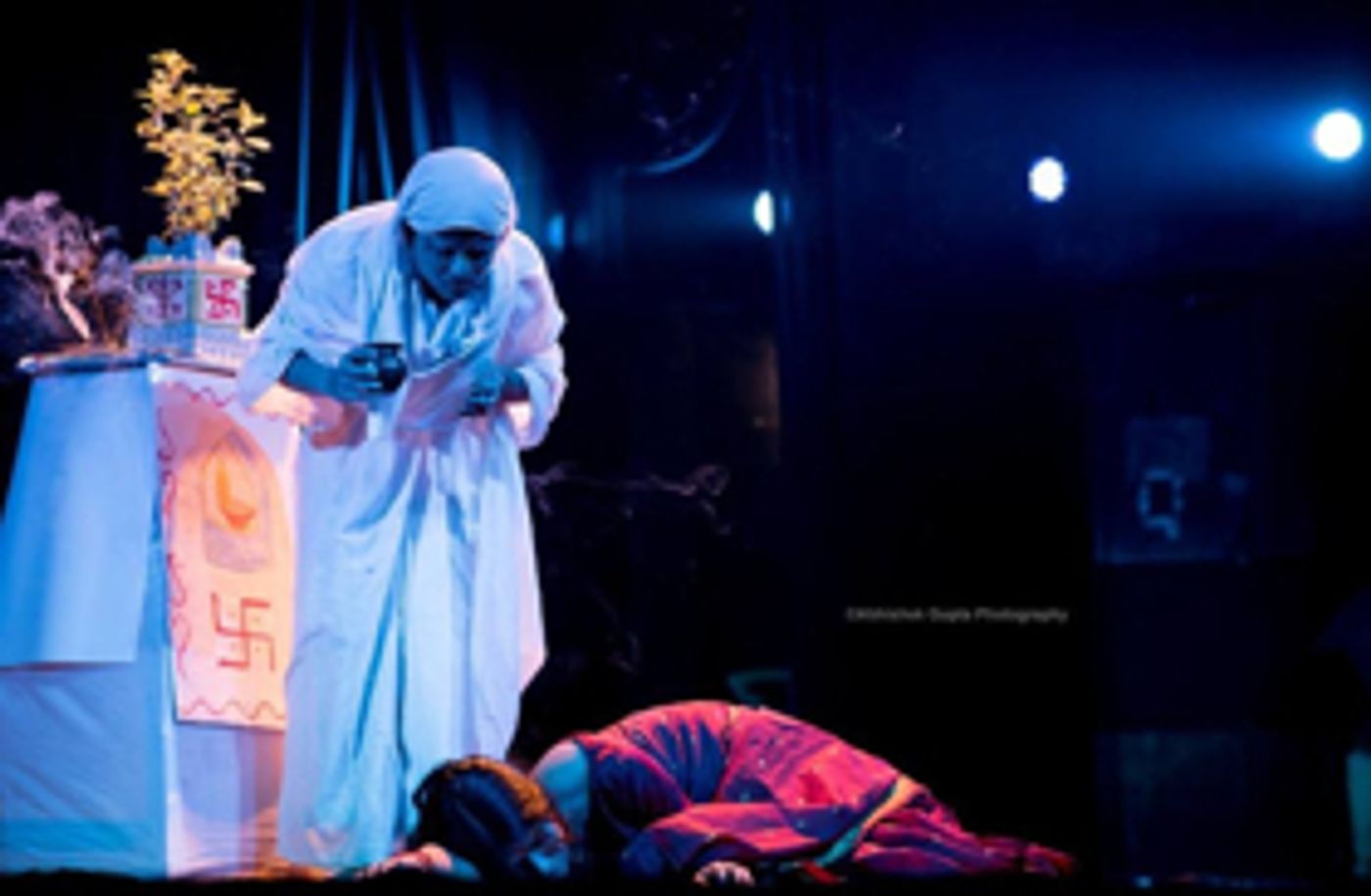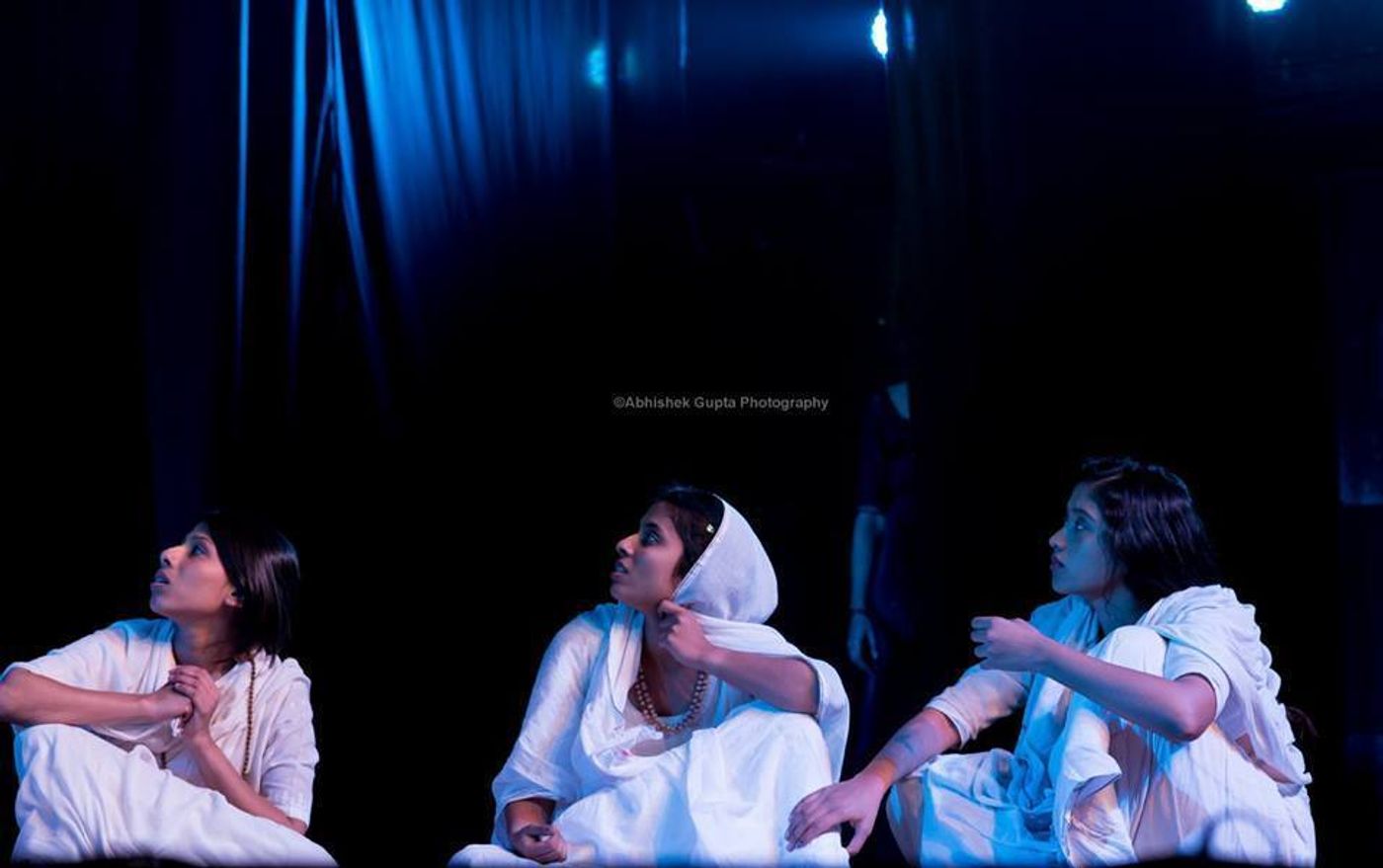Review: THE WHITE SARI in New Delhi

The five meter long Indian drape has across epochs defined several aspects of an Indian woman's existence. 'The White Sari' is a tremendous and if I may say a very colorful attempt at understanding the several shades of cultural control over women.
The play begins with a young woman losing her red bridal sari in exchange of a white one because of her new found widowhood. She is shown as a reluctant participant of the act yet later embodies the spirit of the new group she is attached to. Disowned by her family and loved ones, she finds shelter outside the vulnerable and palpable negligence of the world in an ashram for widows. The play then explores the lives of these women, their submission and subversion of the customs they have been thrown into. With the help of a mammoth cast and elaborate dialogue, the play speaks of issues that intrigue the urban theatre audience; it speaks of sadness and delusion and of a forgotten yet very real India.
The play also employs a counter narrative of classical dance and music, women in the most vibrant costume swooning across the ends of the stage reminding us of the jubilance of happy dancing women- of women with the agency to be happy dancing women. Across the acts, the story employs ample interludes of well choreographed classical pieces that accentuate the emotional gravity of the losses and desires of the ashram's inhabitants. Loss, confusion, homosexual amour, grief and separation- all find language through these interventions.
The cast is terrific and even the comic acts add to the cultural dexterity of the dialogue. Some of the comic dialogue tends to break away from the play especially when homophobia becomes an element of 'comedy' as opposed to the central plot of lesbian attraction. The play complicates its understanding of homosexuality by showing it through several unexplored angles of necessity, as the result of an "immediate absence of men". However, the dialogues remain true to the homophobic characters they belong to and hence not entirely shattering the liberal stance of the creators.
Symbols like the ever-present burning incense in the Tulsi add to the aesthetic relevance of 'The White Sari'. The play has a lot of heart and its entire Hindi narration as opposed to the English title took me by surprise but added to the social relevance of the story. The ending is sad and does not paint like a moral lesson, leaving the audience with a need to contemplate and question social bifurcations and its immense impact on the well-being of women. Widowhood, migration, casteism, sexuality, upper-class bigotry, friendship and longing are some of the many themes that the play explores cementing Vayam the performing arts society's position has a social influencer and enabler of change.
Find more from 'Vayam the performing arts society' here.
Reader Reviews
Videos

